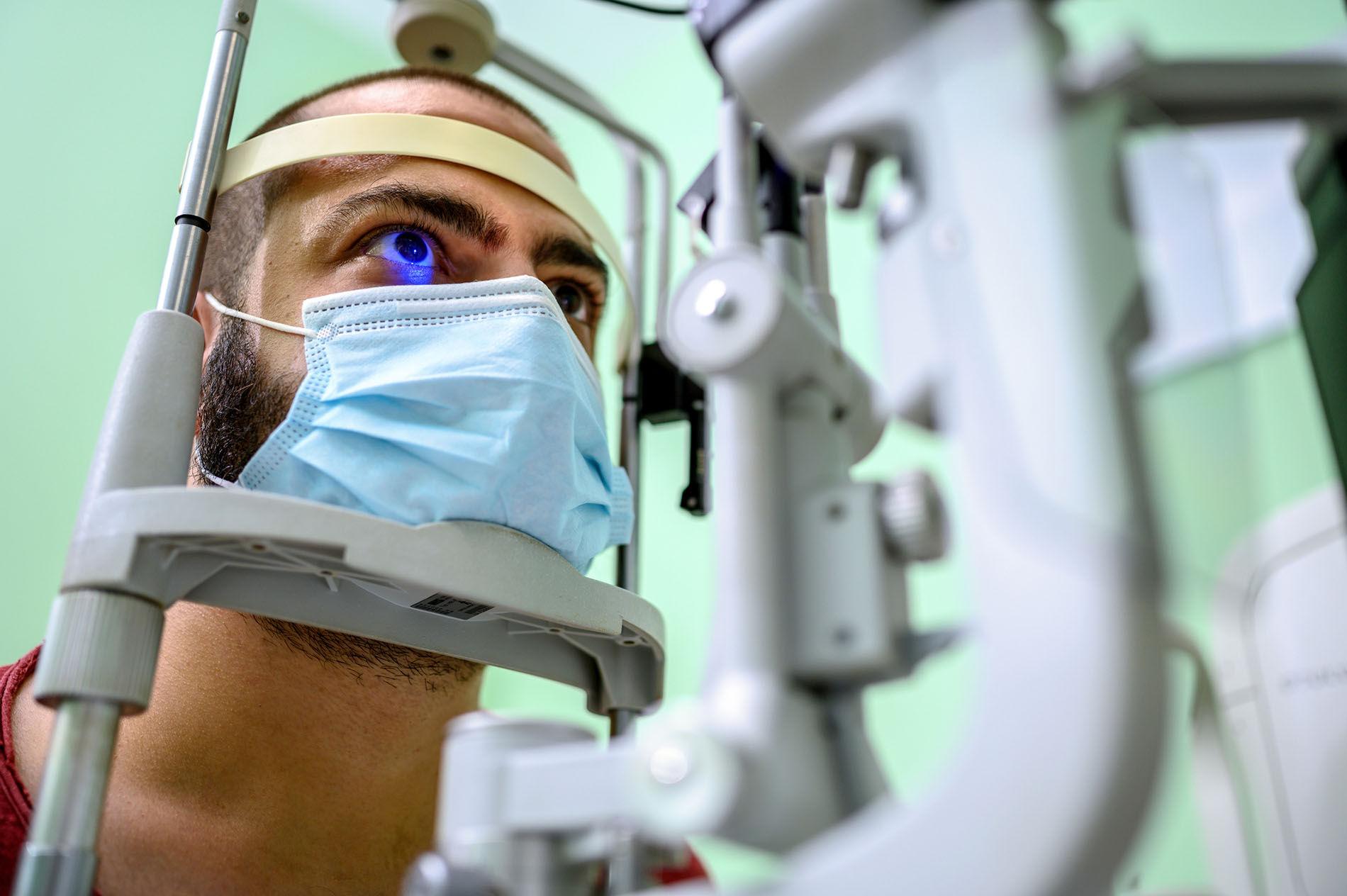If you have pain in your eye that’s not going away, unexplained blurry vision, or persistent watery eyes, you may need an ophthalmologist. This eye specialist can check for various eye health conditions, including corneal disease. The ophthalmologists at WMCHealth are expertly trained in diagnosing and treating corneal disease.
What Is Corneal Disease?
The eye’s cornea is a thin, clear layer that filters and focuses light. It also provides a barrier from dirt and other particles. Infections and injuries can impact the cornea, causing pain and difficulty seeing clearly.

Symptoms of Corneal Disease
Corneal disease symptoms are like those of other conditions, so a complete set of tests is essential to diagnose properly. Symptoms include:
- Mild to severe eye pain
- Sensitivity to light
- The sensation that something is in your eye
- Blurred vision
- Vision that gets worse over time
- Red or bloodshot eyes
- Watery eyes
- Pus or discharge from your eyes
If you experience sudden changes to your vision, sustain an injury or trauma to your eye, or have an object stuck in your eye, seek immediate emergency medical attention.
Types of Corneal Disease
Diseases that affect the cornea can fall into three categories:
- Keratitis: Keratitis is swelling of the cornea. Infectious keratitis, or corneal ulcer, is usually caused by bacteria. Noninfectious keratitis can be caused by an eye injury or environmental conditions that give the feeling of dry eyes.
- Corneal ectasia: This condition changes the shape of your cornea. Corneal ectasia sometimes occurs as a complication of certain surgeries, including LASIK eye surgery and corneal transplant.
- Corneal dystrophies: Fuchs dystrophy, epithelial basement membrane dystrophy, lattice corneal dystrophy, and granular corneal dystrophy are different types of corneal dystrophy, a genetic condition that causes deposits of proteins or fluids to build up on the layers of the cornea.
Treatment for Corneal Disease
Sometimes, corneal disease may show itself through symptoms, but in other cases, no symptoms are present. That’s why a regular eye exam is important for healthy vision.
The cornea can often repair itself quickly. However, in some cases, such as with a deep injury, the damage may be too severe for the cornea to heal on its own. If more than Mother Nature is needed, the doctors at Westchester Medical Center will create a treatment plan that may include:
- Eye drops, ointments or other medications
- Prescription eyeglasses or contact lenses
- Laser procedures: A phototherapeutic keratectomy removes tissue from your cornea with a laser to modify its shape.
- Corneal transplant surgery: This highly advanced surgery uses a donor cornea to restore vision and reduce discomfort. At WMCHealth, we are proud to offer this innovative and life-changing procedure.

